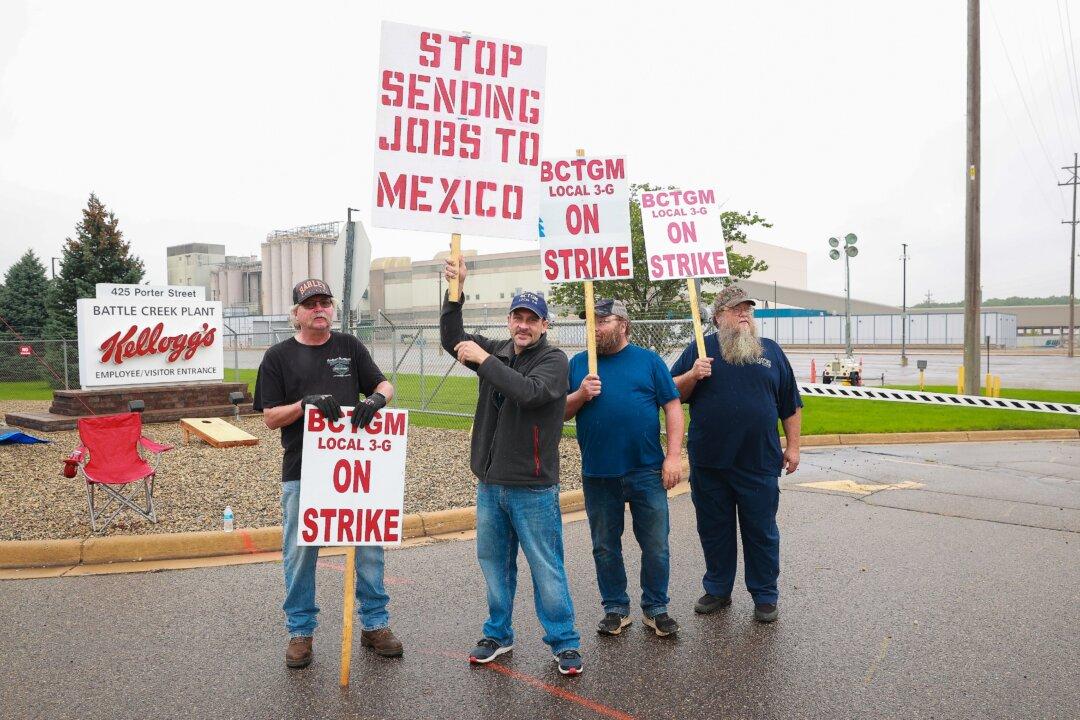Kellogg plans to permanently replace some 1,400 workers who have been striking since October, the company announced this week.
Kellogg and the Bakery, Confectionery, Tobacco Workers, and Grain Millers International Union failed to reach a new contract agreement, leading to the planned change.





